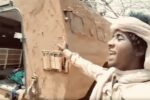South Kordofan: Authorities detain aid volunteers, block agencies as conflict intensifies
19 June 2025
While the complex conflict within South Kordofan continues to impact humanitarian conditions severely, state authorities under the military-controlled government continue to crack down on the humanitarian sector.
On April 21, the army-controlled government aid director, Fadlallah Abdul Qader, issued a directive suspending the operations of 20 national and international civil society organisations (CSOs) in South Kordofan. Among them were major international NGOs like World Vision, the Danish Refugee Council (DRC), and the Norwegian Refugee Council (NRC), as well as local civil society organisations such as Y-Peer South Kordofan and the Kadugli Sharie al-Hawadith Organisation. These organisations were primarily focused on providing emergency aid, peacebuilding, and women’s rights, according to local volunteers.
The move was strongly condemned by the South Kordofan Emergency Response Rooms, local volunteer humanitarian aid networks set up to support the war-affected.
From mid-April to May 2025, local authorities in Kadugli began arresting Emergency Response Room (ERR) volunteers and activists. On 12 May, six activists were detained, including one woman who was not fully released but allowed to return home only during night hours.
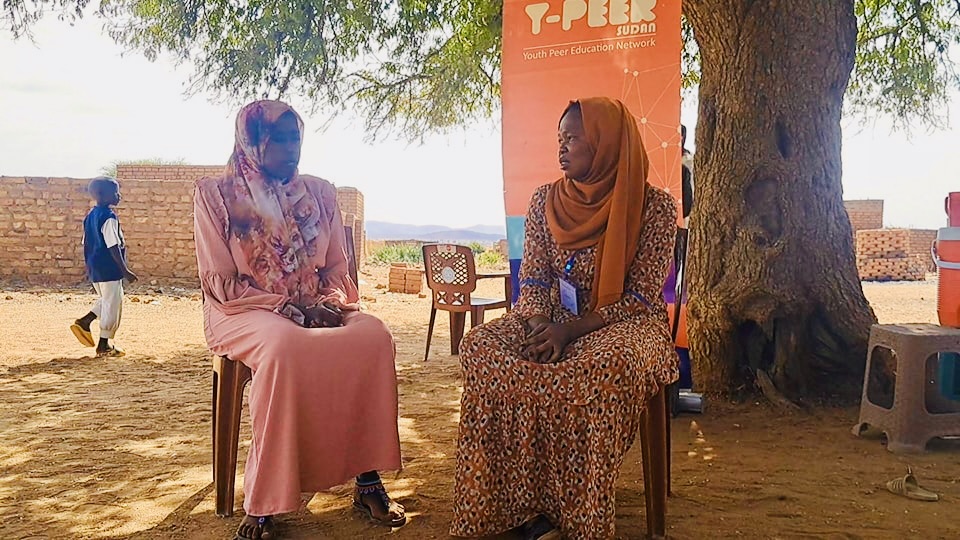
Detained for helping others
A 29-year-old former detainee, *Yazin, told Ayin he was arrested on Saturday, 24 May 2025, at Al Jilab market in Al Tartar city, Al Tadamun locality, by the General Intelligence and Security Service (GISS). “I was arrested because of my involvement in the emergency response rooms in South Kordofan. I was interrogated and accused of being an agent.”
Yazin has been terrorised and threatened with execution, including having guns pointed at his head. He was beaten in the chest, body, and neck; tortured in a sealed, unventilated room; and forced to sit in painful positions for hours. A case was opened against him under Article 64 of the Criminal Code. His phone was confiscated, and he was imprisoned in a 4×3-metre cell with fourteen others.
The wave of arrests coincided with intensified military campaigns in the region, especially following visits by leaders of the Islamist Al-Baraa Bin Malik Battalion, who launched local recruitment drives. In Al-Tadamun locality alone, over six young people—including doctors, teachers, and civil society activists—were arrested. Although Yazin was released on 3 June, he told Ayin he remains under close security surveillance. His laptop remains confiscated, although his phone was returned.
Yazin represents just one of at least 26 other civil society members arrested by military authorities in South Kordofan State between April and May this year.
According to a source who spoke to Ayin—himself detained and released in May—three individuals remain in detention in Kadugli as of this report’s publication. Those who were released continue to be monitored by security forces, with some forbidden from leaving their areas. Arrests have been concentrated in Abu Jubaiha (4), Kadugli (9), Al-Abbasiya (5), and Talodi (2)—all occurring between mid-April and May. The source told Ayin that Kadugli is still under siege, and there are shortages in the humanitarian services, including a daily curfew starting at 6 pm.
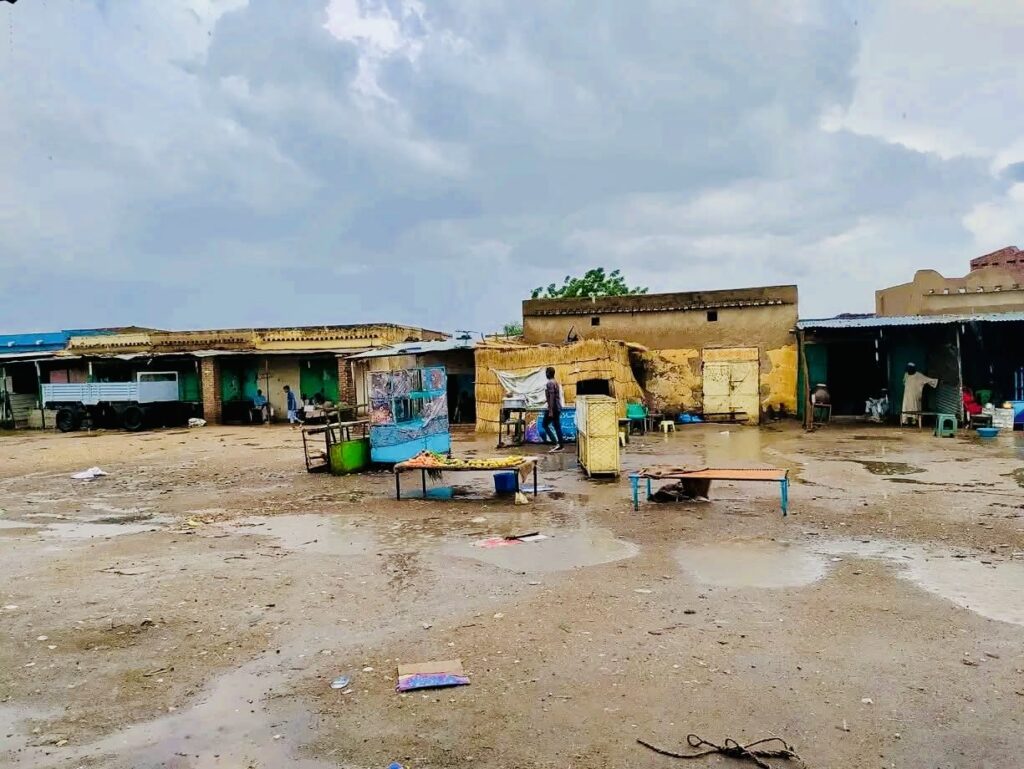
Deteriorating security
Since the outbreak of war in Sudan on 15 April 2023, the security situation in South Kordofan has deteriorated further, becoming a battleground between three forces: the Sudanese Armed Forces (SAF), the Rapid Support Forces (RSF), and the Sudan People’s Liberation Army-North (SPLA-N). Between December 2023 and April 2024, over 47,000 people were displaced from Habila County alone due to RSF-led attacks and general fighting. In May 2025, at least 565 families fled Dibeibat town as clashes intensified between the warring parties.
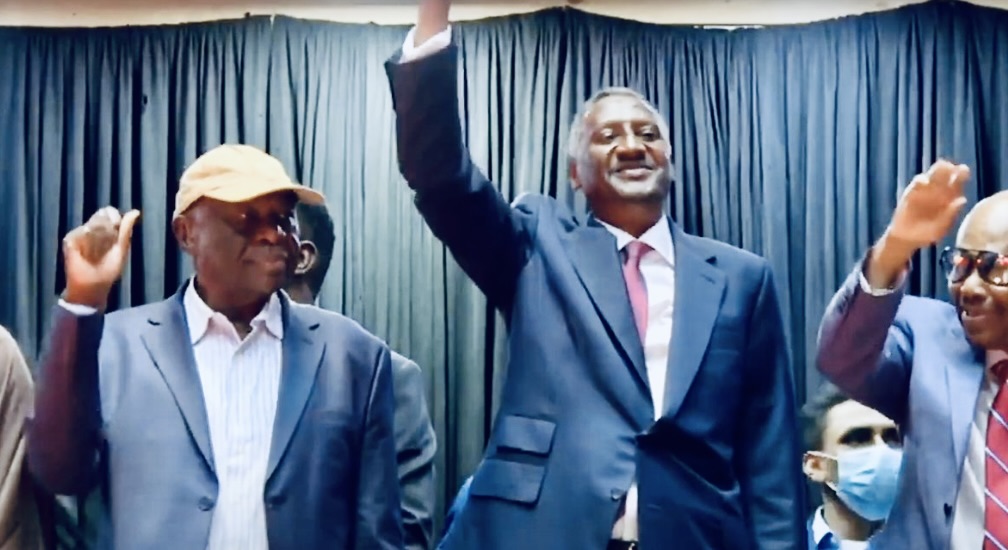
In February, SPLM-N leader Abdelaziz al-Hilu signed a charter with the RSF and allied groups in Nairobi, Kenya, to form a “government of peace and unity” as a parallel authority amid Sudan’s civil war. This alliance marked a major shift in the war dynamics, positioning the SPLM-N as an RSF ally against the army and intensifying conflict within the state.
A member of ERRs in South Kordofan told Ayin that this development has also further endangered activists, who are now being targeted by all three authorities. The most dangerous areas include Kadugli, Dilling, the eastern mountains, Abu Jubaiha, Abbasiya, and Rashad, local volunteers said. In these zones, army intelligence is actively pursuing activists, while SPLM-N and RSF forces have also been implicated in threats, arrests, and even assassination attempts against civil society actors.
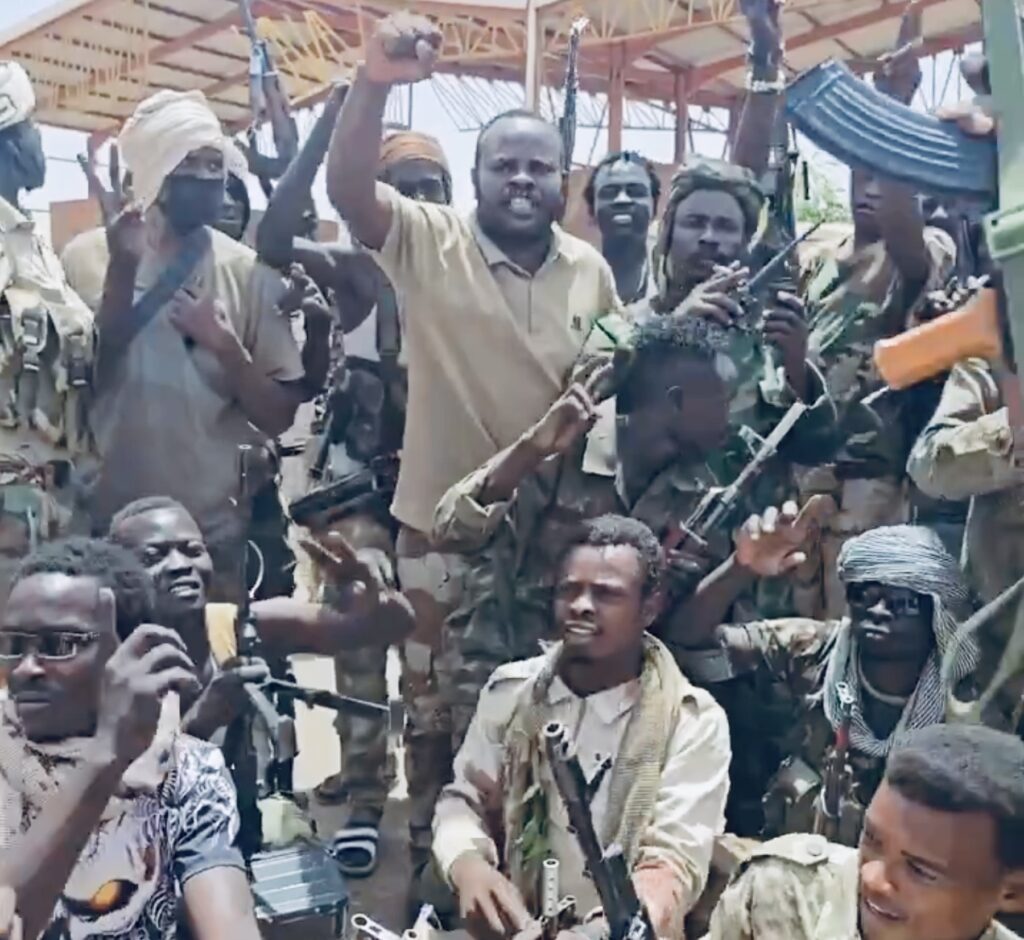
South Kordofan ERRs call for intervention
As humanitarian needs escalate and civil society work is stifled, the state ERRs are calling for urgent regional and international intervention. They fear that the ongoing campaign of intimidation may lead to the total shutdown of their operation by the authorities, an outcome that would deeply affect vulnerable communities.
An ERR member told Ayin that their initiative was founded by volunteers and has no political agenda. Their first actions included distributing food through community kitchens in partnership with international organisations.
Now, the volunteer networks are working to expand across all localities in South Kordofan. One of their key goals is to establish and activate a protection unit that addresses sexual and conflict-related violence and provides support to detainees. These units would connect survivors to protection services and legal aid. “We are trying to work with other partners to cover the services that we couldn’t provide, and we want them to participate with us in providing protection needs and training,” the ERR volunteer added.
*The name has been changed to protect the identity of the source



